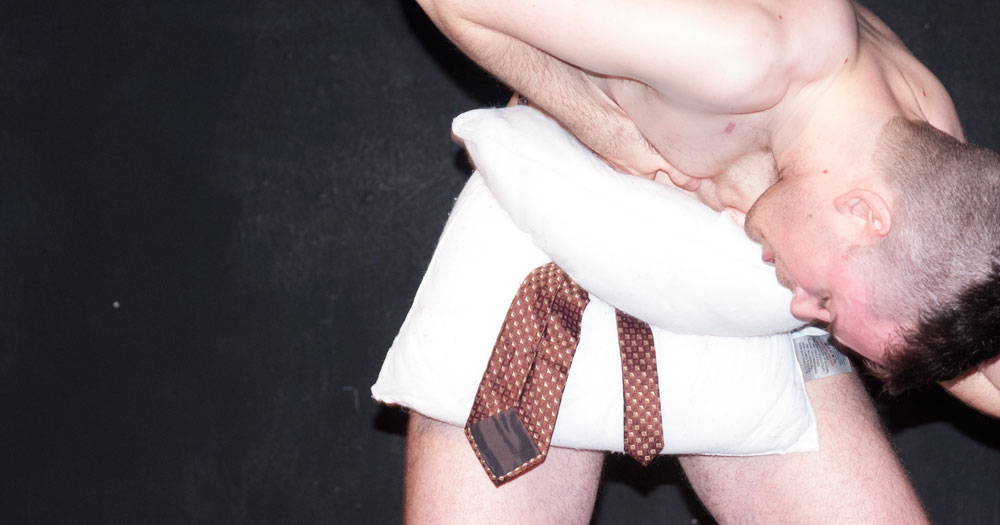“Of course, not every gay, bi, queer or trans identifying man likes anal, but I wager it won’t take you long to find one, which means sooner or later a man is going to get penetrated.”
Whether we’re on our backs, our feet, all fours, our sides, or maybe even suspended in mid-air, “our assholes are revolutionary” and they have the power to undo and rebuild the world around us. I’m not just talking about gay men’s assholes either – this power applies to everyone.
I think this mantra from the French philosopher and thinker Guy Hocquenghem should be on banners at Pride marches around the world, but combinations of shame and anxieties about projecting a squeaky clean, sanitised and ‘acceptable’ view of the wider LGBT+ community keep it largely hidden from view, much like the orifice it names… which is a terrible waste given how much pleasure can be gotten from our butts.
From my own personal experience, gay / queer sexuality is inextricably bound with the asshole (I’m less well-versed in the intricacies and variations of its position in other expressions of sexuality). Of course, not every gay, bi, queer or trans identifying man likes anal, but I wager it won’t take you long to find one, which means sooner or later a man is going to get penetrated. And it’s this particular experience of penetration that fascinates me.
Sometimes assholes provoke disgust, for obvious and boring reasons
While assholes don’t make an actual appearance in LOAD, the show I’m bringing to Dublin Live Art Festival this Friday (sorry about that), I’ve been thinking about them a lot (nothing new there), as well as men’s often uneasy relationship with them. Sometimes they provoke disgust, for obvious and boring reasons, but they also inspire myriad fears about losing control; assuming a position deemed feminine and demeaning (an association I would argue against); of a very literal and physical intimacy. In short, our assholes make us vulnerable.
But penetration is much more than a physical experience. Our eyes, ears and noses are receptive to the world in a way we have comparatively little control over. And this is a world that wants to know more and more about us: who are you, where have you been, where are you going, and why are you here? As sexual minorities, we are regularly required to explain and justify our presence on a daily basis whilst simultaneously being subject to the lurid, sensational fascination found in tabloids, TV talk shows, and in society at large. Meanwhile, our phones act as back-doors into our identities, fragmented and reassembled through a jigsaw of text messages, browser histories and dick pics sent into the ether.
Complicating the notion of vulnerability as equating to weakness
In this kind of environment, it’s completely understandable why an individual might want to raise more barriers around themselves; sometimes it’s the only strategy for survival available. To share our histories and inner experiences is to make ourselves visible to scrutiny and judgement from a society we cannot always be sure has our best interests at heart. I’m not as wholly transparent as I’d like to be. But I want to complicate the notion of vulnerability as equating to weakness. My personal experiences of opening up to friends and family on matters of health and sexuality have been empowering acts, creating a space for others to do the same and inspiring greater intimacy between us; and I see correspondences to this in the opening up of my body to others’ physical presence and explorations. What kind of society would it be if all men, regardless of sexual orientation, were as amenable to this idea, dismissing the embarrassment that surrounds it?
It’s easy for me to rhapsodise about the power of vulnerability and penetrability when I live in London, surrounded by a supportive family and social circle. The particularities of place are another important factor in LOAD. As well as being a performance about the audience’s journey from exterior to interior, it is also about a sick, queer body trying to penetrate a national border, and the penetration that sick, queer body must undergo in order to pass through it. Lots of the action in my performance takes place in New York, little more than five years since America lifted its ban on people with HIV entering the country. As should be evident to anyone with a passing interest in current events right now, minorities are not on a one-way journey to greater liberation; the freedoms that have been won are precarious and can be lost easily when people stay silent.
Why this performance? Why now? We all live in penetrable and penetrating bodies, and LOAD is an attempt to articulate the complexity and ambiguity of these positions and possibilities in a world where privacy is being eroded, data is being mined, and celebrations of difference and diversity fight for space.
It’s not going to change the world of course, but I think back to those intimate, one-on-one moments with friends and lovers, creating space to talk more freely, and seeing them reciprocate. I imagine the chain-reaction that may take place between them and others far into the future, frustratingly slow but shifting the sands (hopefully) in a positive direction. And I see power in people coming together to see queer performance, to hear queer stories, and for them to bleed into the world in unpredictable ways. So I’ll say it again: our assholes, and our vulnerability, are revolutionary.
Gareth Cutter’s LOAD is part of the Dublin Live Art Festival, which runs from August 17 to 20, find out more here.
© 2017 GCN (Gay Community News). All rights reserved.



comments. Please sign in to comment.